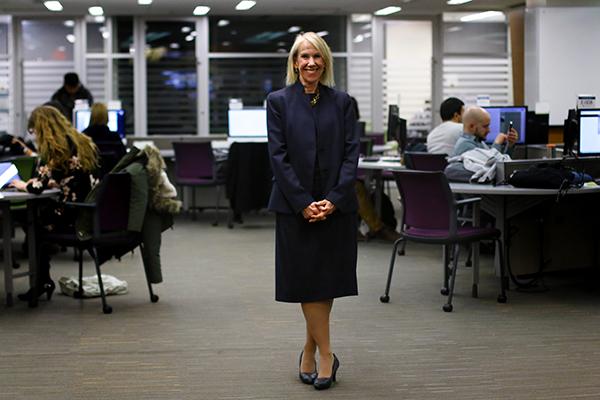GW’s libraries are helping staff and students become more tech savvy.
The libraries introduced a new digital assistance program that will hold free lessons to improve participants’ coding and programming skills this month. Geneva Henry, the vice provost for libraries, said GW decided to provide this service to keep faculty, staff and students up to date with coding and web development.
She said the one-on-one sessions with computer experts in the libraries will allow anyone, from professional software developers to students or faculty, to get help on projects that requires coding. The sessions can include skills like Python, Java and HTML.
“A major focus of the libraries is to ensure our students and faculty have access to these new ways of exploring, creating and discovering information,” Henry said in an email.
She added that GW librarians with a background in digital services and computer science will assist participants in the consultations.
“Consultations are provided or supervised by professional software developers who are GW librarians with deep experience building technological solutions for academic research problems,” Henry said.
The new service covers coding, programming, debugging and manipulating data. The sessions will also cover using databases and converting website information for search engines with three markup languages, according to the service’s website.
Participants must bring their own software and equipment to the training sessions, which they can schedule online, according to the service’s webpage.
Coding is becoming increasingly marketable for jobs and GW’s programs have been offering more options to learn the skill. The School of Media and Public Affairs implemented a new curriculum last year that focuses more on web skills like coding.
The libraries’ site also stated that the consultation exists as a place where participants can receive computing information for their own “academic or scholarly inquiry,” rather than a place to only get extra help with computer science homework.
GW hired Henry, who brought with her experience in digital programs, to be the top librarian in 2013. Within her first few months, Henry planned on using a $16 million upgrade for Gelman Library to expand the digital resources of the library and make better use of the building. She also introduced 3-D printers to the library in August.
Last month Henry was appointed to oversee a new division including online teaching and learning, a combination of the online education and teaching and learning offices, as well as continuing to lead the University’s libraries.
Experts said many university libraries are adding online and digital services to make them more of a technology hub.
Thomas Mahon, the manager of training and outreach of the information services at Kent State University, said a workshop could be useful for participants to stay on top of the constantly changing digital world in education and other industries.
“It’s helpful to be able to take a workshop on these new technologies as they emerge so that they can keep their skills up to date,” he said. “By offering everything for free, it’s a way for information services to add value to the college experience.”








